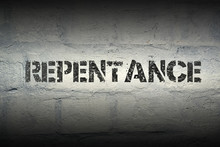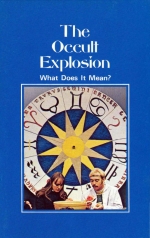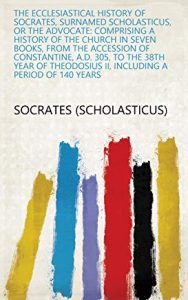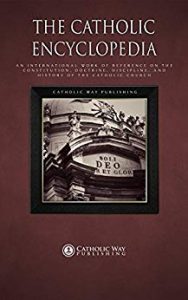Passover is on the 14th of Nisan and is to be observed after sunset on April 4, 2023, which is what would now be called Tuesday evening–just like Jesus’ last Passover, which was also on a Tuesday evening.
Notice that it was understood in the second century that Jesus’ arrest occurred on the third day, which was Tuesday (with Sunday being the first day, then Monday the second day). That means that the Passover obviously was not on a Sunday–and no scholar I am aware of teaches that Jesus’ last Passover was on a Sunday.
Did the Apostles keep the 14th of Nisan or did they choose Sunday, a day no one believes the last Passover could have happened?
Is it logical that some of the faithful Apostles actually kept different dates for the observance of the Christian Passover?
Some claim that Peter and Paul kept Sunday, while teaching that John and Philip kept the 14th of the month of Nisan for the Christian Passover.
Many seem to believe the following written by the 5th century Eastern Catholic historian Socrates Scholasticus:
No.
But many believe this and related statements, hence they do not keep Passover on the 14th day of the first month of the biblical year (Exodus 12:2), which is often known as Nisan (Esther 3:7). Instead most who claim Christianity keep Easter Sunday.
Before going further, it may be of interest to note that ‘Easter’ is claimed to be Passover, Notice what the Catechism of the Catholic Church teaches:
Easter itself is not a Christian term, and its celebration contains pagan elements. The Catholic Encyclopedia article on Easter notes:
Thus, the Romans admit that the name Easter is the name of a pagan goddess and that the churches in Asia Minor (which they call the Orient) continued to observe Passover on the date that the Jews did, Nisan 14. But it was not just Jews, but also Gentile Christians who did so.
Now, let’s consider if there is early evidence that the Apostle Paul observed Passover or Easter Sunday.
The Apostle Paul declared to the Jews that he kept the law, etc. in the Book of Acts. Near the end of his life he declared he kept the customs of his people:
17 … Paul called the leaders of the Jews together. So when they had come together, he said to them: “Men and brethren, though I have done nothing against our people or the customs of our fathers, yet I was delivered as a prisoner from Jerusalem into the hands of the Romans, 18 who, when they had examined me, wanted to let me go, because there was no cause for putting me to death.” (Acts 28:17-18)
If Paul did nothing against the Jewish customs, this means he kept the Sabbath, Holy Days, and the Ten Commandments. That meant he kept the 14th. Those who claim Paul kept Sunday are in error. So, Acts 28 provides biblical proof he kept the 14th.
And, we also have biblical proof that the Apostle Paul told the Gentile Corinthians to keep Passover:
7 Therefore purge out the old leaven, that you may be a new lump, since you truly are unleavened. For indeed Christ, our Passover, was sacrificed for us. 8 Therefore let us keep the feast, not with old leaven, nor with the leaven of malice and wickedness, but with the unleavened bread of sincerity and truth (1 Corinthians 5:7-8).
Now how were Christians to do this?
The Apostle Paul explains:
23 For I received from the Lord that which I also delivered to you: that the Lord Jesus on the same night in which He was betrayed took bread; 24 and when He had given thanks, He broke it and said, “Take, eat; this is My body which is broken for you; do this in remembrance of Me.” 25 In the same manner He also took the cup after supper, saying, “This cup is the new covenant in My blood. This do, as often as you drink it, in remembrance of Me.” 26 For as often as you eat this bread and drink this cup, you proclaim the Lord’s death till He comes. (1 Corinthians 11:23-26)
So Christians were to keep the Passover in the manner that Jesus observed His final Passover. Which was on the 14th at night.
The Eastern Orthodox also recognize that Passover was at night. Here is something from one of their priests:
Our earliest sources for the annual celebration of the Christian Pascha come to us from the second century … The feast, however, must have originated in the apostolic period … According to the earliest documents, Pascha is described as a nocturnal celebration … (Calivas, Alkiviadis C. The Origins of Pascha and Great Week – Part I. Holy Cross Orthodox Press, 1992. Greek Orthodox Archdiocese of America, http://www.goarch.org/ourfaith/ourfaith8504 viewed 11/04/2011)
Notice that this was kept from the time of the apostles and at night. This is NOT the case for Easter Sunday, which is observed in early morning.
Furthermore, while we in the CCOG (Continuing Church of God) consider Jesus’ use of the bread and wine to be the Christian Passover, groups like the Church of Rome call it the ‘Last Supper’ as we see from The Catholic Encyclopedia:
Jesus and his disciples conformed to the ordinary custom, that the Last Supper took place on the 14th of Nisan (Mershman, Francis. “The Last Supper.” The Catholic Encyclopedia. Vol. 14. New York: Robert Appleton Company, 1912)
So, even those of the Church of Rome admit that Jesus did this on the 14th of Nisan. And that is when we in the CCOG keep it!
Notice some passages that the Apostle Paul and Apostle Peter wrote:
1 Imitate me, just as I also imitate Christ. (1 Corinthians 11:1)
21 For to this you were called, because Christ also suffered for us, leaving us an example, that you should follow His steps: (1 Peter 2:21)
Those who keep Passover on the 14th are imitating both Jesus and the Apostle Paul. Which Peter would have himself also done.
Although I believe that portions of the text were corrupted (and the extant editions contain what seem to be non-original additions), there is some interesting information in the so called The Life of Polycarp. This document seems to be based upon writings in the second century, but the extant version contains information/changes that seem to be added in the fourth century.
Interestingly, it suggests that this Passover “tradition” in Asia Minor may not have first came to Smyrna from the Apostle John, but even earlier from the Apostle Paul:

In the days of unleavened bread Paul, coming down from Galatia, arrived in Asia, … So in Smyrna he went to visit Strataeas, … Paul then, entering his house and gathering together the faithful there, speaks to them concerning the Passover and the Pentecost, reminding them of the New Covenant of the offering of bread and the cup; how that they ought most assuredly to celebrate it during the days of unleavened bread, … For here the Apostle plainly teaches that we ought neither to keep it outside the season of unleavened bread, as the heretics do, especially the Phrygians… (Pionius, Life of Polycarp, Chapter 2. Translated by J. B. Lightfoot, The Apostolic Fathers, vol. 3.2, 1889, pp.488-506)
The Phrygians were like early Pentecostals. And Paul, according to the above, was saying to keep Passover at its proper time.
Anyway, it makes no sense that those of Asia Minor who continued to keep Passover on the 14th for centuries had the Apostle Paul coming and telling them to change it to a Sunday, and then they changed back.
What about the Apostle Peter?
Did he go to Rome and tell them to switch to Sunday?
No.
Some Catholic sources claim that Pius of Rome was the one that formally decreed the Easter/Passover Sunday idea:
Pope Pius I is given great credit in establishing customs and norms of the Church. He wrote a decree indicating that Easter should only be on a Sunday, despite whatever customs had been practiced so far. However, it was up to Pope Victor I, at the end of the century, to enforce the decree. (Booton McCoy D. Pope Saint Pius I. Catholic365.com 09/30/15 http://www.catholic365.com/article/2463/pope-saint-pius-i.html retrieved 03/21/19)
So, the above admits that Sunday was NOT the original practice. Presuming the above account is accurate, Pius did not claim to get this from the Apostle Peter.
Furthermore:

Plain Truth, December 1962
“Pope Pius, who lived about 147, had made a decree, That the annual solemnity of the Pasch (Pasch is the Greek word for Passover), should be kept only on the Lord’s day” — Sunday — “and in confirmation of this he pretended, that Hermes, his brother, who was then an eminent teacher among them, had received instruction from an angel, who commanded that all men should keep the Pasch on the Lord’s day” — “Baal’s Day”! (From pp. 1148-1149 of Bingham’s Antiquities of the Christian Church. See also Apostolical Fathers, by Donaldson, p. 324)
If this letter was a deliberate forgery, it was invented after Polycarp’s time in an effort to lend weight to the pagan custom of Anicetus, bishop of Rome, who falsely maintained the Sunday observance of the eucharist. If it were not a forgery, then Pius himself was the author of this deceptive letter. (Pius died just prior to the visit of Polycarp to Rome)
This is the kind of deception by which Sunday was introduced into the professing Christian world! (Hoeh H. Where Did Jesus Command You to Observe SUNDAY? Plain Truth, December 1962)
Furthermore, Pius’ successor Bishop of Rome Anicetus did not state he got Sunday from Peter, but only early presbyters when he tried to defend the Sunday date against the date of the 14th advocated by the second century Bishop Polycarp of Smyrna (and he likely was so ordained in the first century A.D.).
Specifically, no further back than a practice of the Roman Sixtus, not Peter (Irenaeus. FRAGMENTS FROM THE LOST WRITINGS OF IRENAEUS. Translated by Alexander Roberts and James Donaldson. Excerpted from Volume I of The Ante-Nicene Fathers. American Edition copyright © 1885).
Consider also that the late 4th century historian and Roman and Eastern Orthodox saint Epiphanius clearly understood that the church used to observe the 14th when he wrote:
Audians … they choose to celebrate the Passover with the Jews–that is they contentiously celebrate the Passover at the same time as the Jews are holding their Festival of Unleavened Bread. And indeed that this used to be the church’s custom (Epiphanius. The Panarion of Epiphanius of Salamis, Books II and III (Sects 47-80), De Fide). Section VI, Verses 8,11; 9,2. Translated by Frank Williams. EJ Brill, New York, 1994, pp. 420-421).
The idea that Peter kept Passover on Sunday seemed to develop in the fourth century. It likely came about related to the sun-god worshiping pagan Emperor Constantine who summoned Greco-Roman religious leaders to Nicea in 325 A.D.

Sculpture of Constantine’s Head
(Photo by Jean-Christophe BENOIST)
Related to deciding that Passover should be on Sunday, Emperor Constantine declared:
Let us then have nothing in common with the detestable Jewish crowd; for we have received from our Saviour a different way. (Eusebius’ Life of Constantine, Book III chapter 18)
Yet, Jesus did not declare that the Jews were detestable (He was a Jew) or that He changed the date of Passover. But apparently sun-worshipping Constantine felt otherwise.
As far as Easter Sunday goes, Socrates Scholasticus admitted:
The Saviour and his apostles have enjoined us by no law to keep this feast: nor do the Gospels and apostles threaten us with any penalty, punishment, or curse for the neglect of it, as the Mosaic law does the Jews. … So also the feast of Easter came to be observed in each place according to the individual peculiarities of the peoples inasmuch as none of the apostles legislated on the matter. And that the observance originated not by legislation, but as a custom the facts themselves indicate. In Asia Minor most people kept the fourteenth day of the moon, (Socrates Scholasticus. Ecclesiastical History, Book V, Chapter XXII. Excerpted from Nicene and Post-Nicene Fathers, Second Series, Volume 2. Edited by Philip Schaff and Henry Wace. American Edition, 1890).
So, Easter Sunday was not something from the apostles or scripture. And Jesus and Paul were keeping Passover on the 14th. But, what about John and the other apostles?
In the second century, Irenaeus stated that Polycarp kept 14 and that “these things had been always [so] observed by John the disciple of our Lord, and by other apostles with whom he had been conversant” (Irenaeus. FRAGMENTS FROM THE LOST WRITINGS OF IRENAEUS. Translated by Alexander Roberts and James Donaldson. Excerpted from Volume I of The Ante-Nicene Fathers. American Edition copyright © 1885). Polycarp knew the Apostle John from the first century, and since Irenaeus also claimed to have known Polycarp, this is additional early evidence that John kept Passover on the 14th.
Additionally, we also have a second century account from Polycrates of Ephesus:
We observe the exact day; neither adding, nor taking away. For in Asia also great lights have fallen asleep, which shall rise again on the day of the Lord’s coming, when he shall come with glory from heaven, and shall seek out all the saints. Among these are Philip, one of the twelve apostles, who fell asleep in Hierapolis; and his two aged virgin daughters, and another daughter, who lived in the Holy Spirit and now rests at Ephesus; and, moreover, John, who was both a witness and a teacher, who reclined upon the bosom of the Lord, and, being a priest, wore the sacerdotal plate. He fell asleep at Ephesus. And Polycarp in Smyrna, who was a bishop and martyr; and Thraseas, bishop and martyr from Eumenia, who fell asleep in Smyrna. Why need I mention the bishop and martyr Sagaris who fell asleep in Laodicea, or the blessed Papirius, or Melito, the Eunuch who lived altogether in the Holy Spirit, and who lies in Sardis, awaiting the episcopate from heaven, when he shall rise from the dead ? All these observed the fourteenth day of the passover according to the Gospel, deviating in no respect, but following the rule of faith. And I also, Polycrates, the least of you all, do according to the tradition of my relatives, some of whom I have closely followed. For seven of my relatives were bishops; and I am the eighth. And my relatives always observed the day when the people put away the leaven. I, therefore, brethren, who have lived sixty-five years in the Lord, and have met with the brethren throughout the world, and have gone through every Holy Scripture, am not affrighted by terrifying words. For those greater than I have said ‘ We ought to obey God rather than man’…I could mention the bishops who were present, whom I summoned at your desire; whose names, should I write them, would constitute a great multitude. And they, beholding my littleness, gave their consent to the letter, knowing that I did not bear my gray hairs in vain, but had always governed my life by the Lord Jesus (Eusebius. The History of the Church, Book V, Chapter XXIV, Verses 2-7 . Translated by A. Cushman McGiffert. Digireads.com Publishing, Stilwell (KS), 2005, p. 114).
Note that Polycrates:
1) Claimed to be a follower of the teachings passed on from the Apostle John
2) Claimed that he was being faithful to the teachings of the Gospel
3) Relied on the position that teachings from the Bible were above those of Roman-accepted tradition
4) Claimed that he was being faithful to the teachings passed down to him
5) Was then the spokesperson for many in Asia Minor
6) Claimed he and his predecessors observed the time of unleavened bread
7) Refused to accept the authority of Roman tradition over the Bible
8) Refused to accept the authority of the Bishop of Rome–he preferred to be separate (cf. Revelation 18:4)
9) Claimed that his life was to be governed by Jesus and not opinions of men
Polycrates mentioned that the two apostles who died in Asia Minor kept Passover on the 14th, plus several Gentile Church of God leaders.
So, we have at least two, second century accounts that the Apostle John kept Passover on the 14th–and one that mentions the Apostle Philip.
Now, in the New Testament, after Jesus’ resurrection, at least eight times in the Book of Acts and once in Galatians, we repeatedly see that John and Peter were mentioned together (they are named those times, and were also often with each other when not named).
Does anyone really believe that John and Peter did not observe the same date of Passover?
That would make no sense.
Furthermore, modern Roman Catholic scholars have accepted that fact.
As did early ones. For example, the medieval historian and Roman Catholic Priest Bede (also known as “the Venerable Bede”) recorded from a Roman Catholic Abbot named Wilfrid, who was trying to justify near the beginning of the 8th century why it was acceptable to not follow the Apostle John’s practices regarding Passover:
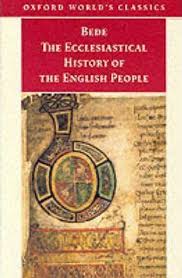
Far be it from me to charge John with foolishness: he literally observed the decrees of the Mosaic law when the Church was still Jewish in many respects, at a time when the apostles were unable to bring a sudden end to that law which God ordained…They feared, of course, that they might make a stumbling block for the Jewish proselytes…
So John, in accordance with the custom of the law, began the celebration of Easter Day in the evening of the fourteenth day of the first month, regardless of whether it fell on the sabbath or any other day. … All the followers of St. John in Asia since his death and also the whole church throughout the world have followed this observance. That this is the true Easter and that this alone must be celebrated…(Bede. Edited by Judith McClure and Roger Collins. The Ecclesiastical History of the English People. Oxford University Press, NY, 1999, pp. 156-157)
Really, the Apostle John was afraid and that is why he kept the 14th?
That is absurd.
He kept the 14th because it was biblical and he kept what he learned from Jesus. That is the one true Passover!
John wrote:
6 He who says he abides in Him ought himself also to walk just as He walked. (1 John 2:6)
4 I have no greater joy than to hear that my children walk in truth. (3 John 4)
The truth is that Jesus and John kept Passover on the 14th after sunset.
Furthermore, John warned against those who did not follow his practices:
18 Little children, it is the last hour; and as you have heard that the Antichrist is coming, even now many antichrists have come, by which we know that it is the last hour. 19 They went out from us, but they were not of us; for if they had been of us, they would have continued with us; but they went out that they might be made manifest, that none of them were of us. (1 John 2:18-19)
Notice carefully that John was inspired to write that those who did not keep his same practices were antichrists. Obviously, John must have been keeping Jesus’ practices too or he would have been among the antichrists. Instead, Jesus had John record the Revelation.
Anyway, the records we have from the Bible as well as early post-biblical literature support the view that the Apostles John, Paul, Peter, and Philip all kept Passover on the 14th and that none of them were keeping Easter Sunday.
The evidence from the Bible is from the first century and we also have other records of that in the second century. That simply is not the case for Easter Sunday for Peter or Paul.
Do not be deceived by the craftiness of Satan (2 Corinthians 3:11) or others he has influenced, the Christian Passover is on the 14th of Nisan (and is to be observed after sunset on March 26, 2021.). The 14th is when Jesus observed His Passover, the Apostles observed the Christian Passover, and the faithful have observed it in the centuries since.
Christians are “to contend earnestly for the faith which was once for all delivered to the saints” (to Jude 3). And not fall for arguments that suggest otherwise (cf. Jude 4-8).
Keeping Passover on the right day, right time, and right way was important to early Christians.
Keeping Passover on the 14th was part of the original faith. Keeping Easter Sunday certainly was not.
Is imitating the true practices of Jesus and the Apostles important enough to you?
Related to all of this, the Continuing Church of God just put together this video its ContinuingCOG channel:

24:02
The fifth century historian Socrates Scholasticus wrote the those of Asia Minor said they kept Passover on the 14th of Nisan following the practices of the Apostle John, whereas those of the Romans and the West observed what is now called Easter Sunday following the practices of the Apostles Peter and Paul. Socrates claimed that neither side had written evidence to back up their claims. But what does the Bible reveal? Do the earliest records outside the Bible point to the apostles keeping the 14 of Nisan or Easter Sunday. What does the Catholic Encyclopedia reveal? What about the Catechism of the Catholic Church and Eastern Orthodox writings? Was Passover supposed to e a nocturnal observance or a Sunday morning one? Can you know? Does this make any difference for Christians today? Dr. Thiel addresses these points from the Bible, historical records, and later church writings.
Here is a link to the video: Did Peter, Paul, & John keep Easter Sunday or Passover?
Some items of possibly related interest may include the following:
Passover and the Early Church Did the early Christians observe Passover? What did Jesus and Paul teach? Why did Jesus die for our sins? There is also a detailed YouTube video available titled History of the Christian Passover.
Beliefs of the Original Catholic Church: Could a remnant group have continuing apostolic succession? Did the original “catholic church” have doctrines held by the Continuing Church of God? Did Church of God leaders uses the term “catholic church” to ever describe the church they were part of? Here are links to related sermons: Original Catholic Church of God?, Original Catholic Doctrine: Creed, Liturgy, Baptism, Passover, What Type of Catholic was Polycarp of Smyrna?, Tradition, Holy Days, Salvation, Dress, & Celibacy, Early Heresies and Heretics, Doctrines: 3 Days, Abortion, Ecumenism, Meats, Tithes, Crosses, Destiny, and more, Saturday or Sunday?, The Godhead, Apostolic Laying on of Hands Succession, Church in the Wilderness Apostolic Succession List, Holy Mother Church and Heresies, and Lying Wonders and Original Beliefs. Here is a link to that book in the Spanish language: Creencias de la iglesia Católica original.
Did Early Christians Celebrate Easter? If not, when did this happen? What do scholars and the Bible reveal?
Why Easter? Did early Christians observe Easter? What are the origins of Easter? What does Easter have to do with the goddess Ishtar. Where did the word Easter come from? Where do Easter eggs come from? What do rabbits have to do with Easter? Was Jesus resurrected on a Sunday? This is a video.
Should You Observe God’s Holy Days or Demonic Holidays? This is a free pdf booklet explaining what the Bible and history shows about God’s Holy Days and popular holidays. A related sermon is Which Spring Days should Christians observe?
The Passover Plot What was the first Passover plot? Which plots have Islam and the Greco-Roman faiths perpetuated about Passover? A sermon video of related interest is The Passover Plots, Including Easter.
Do You Practice Mithraism? Many practices and doctrines that mainstream so-called Christian groups have are the same or similar to those of the sun-god Mithras. Do you follow Mithraism combined with the Bible or original Christianity? A sermon video from Vatican City is titled Church of Rome, Mithras, and Isis?
Marcus, the Marcosians, & Mithraism: Developers of the Eucharist? Marcus was a second century heretic condemned for having a ceremony similar to one still practiced by many who profess Christ. Might he also be in the apostolic succession list of the Orthodox Church of Alexandria?
Passover and the Early Church Did the early Christians observe Passover? What did Jesus and Paul teach? Why did Jesus die for our sins? There is also a detailed YouTube video available titled History of the Christian Passover.
What Happened in the ‘Crucifixion Week’? How long are three days and three nights? Was Palm Sunday on a Saturday? Did Jesus die on “Good Friday”? Was the resurrection on Sunday? Do you really know? Who determined the date of Easter? (Here is a related link in Spanish/español: ¿Murió Jesús un día miércoles o un viernes?)
Is There “An Annual Worship Calendar” In the Bible? This paper provides a biblical and historical critique of several articles, including one by WCG which states that this should be a local decision. What do the Holy Days mean?
Holy Day Calendar This is a listing of the biblical holy days through 2033, with their Roman calendar dates. They are really hard to observe if you do not know when they occur ? In the Spanish/Español/Castellano language: Calendario de los Días Santos. In Mandarin Chinese: 何日是神的圣日? 这里是一份神的圣日日历从2013年至2024年。.
Tradition and Scripture: From the Bible and Church Writings Are traditions on equal par with scripture? Many believe that is what Peter, John, and Paul taught. But did they? A related sermon is titled Tradition and Scripture.
Where is the True Christian Church Today? This free online pdf booklet answers that question and includes 18 proofs, clues, and signs to identify the true vs. false Christian church. Plus 7 proofs, clues, and signs to help identify Laodicean churches. A related sermon is also available: Where is the True Christian Church? Here is a link to the booklet in the Spanish language: ¿Dónde está la verdadera Iglesia cristiana de hoy? Here is a link in the German language: WO IST DIE WAHRE CHRISTLICHE KIRCHE HEUTE? Here is a link in the French language: Où est la vraie Église Chrétienne aujourd’hui?
The History of Early Christianity Are you aware that what most people believe is not what truly happened to the true Christian church? Do you know where the early church was based? Do you know what were the doctrines of the early church? Is your faith really based upon the truth or compromise?
Melito’s Homily on the Passover This is one of the earliest Christian writings about the Passover. This also includes what Apollinaris wrote on the Passover as well. Here is a related sermon, also titled Melito’s Homily on the Passover.
Continuing History of the Church of God This pdf booklet is a historical overview of the true Church of God and some of its main opponents from Acts 2 to the 21st century. Related sermon links include Continuing History of the Church of God: c. 31 to c. 300 A.D. and Continuing History of the Church of God: 4th-16th Centuries and Continuing History of the Church of God: 17th-20th Centuries. The booklet is available in Spanish: Continuación de la Historia de la Iglesia de Dios, German: Kontinuierliche Geschichte der Kirche Gottes, French: L �Histoire Continue de l �Église de Dieu and Ekegusii Omogano Bw’ekanisa Ya Nyasae Egendererete.
